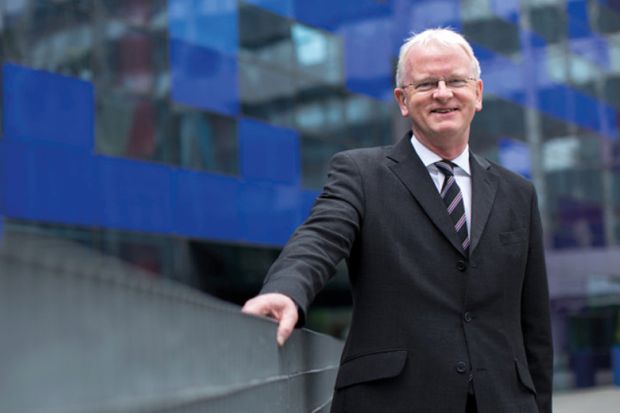A world-class physicist who became the first provost of Imperial College London has died.
James Stirling was born in Belfast in 1953 and grew up in County Antrim before taking a degree in mathematics at Peterhouse, University of Cambridge (1975), followed by a PhD in theoretical particle physics (1979). He had research positions at the University of Washington, Seattle and Cern before joining Durham University as a lecturer in 1986. He was promoted to professor in 1992 – attached, unusually, to the departments of both mathematical sciences and physics – to director of the new Institute for Particle Physics Phenomenology in 2000 and pro vice-chancellor with special responsibility for research in 2005.
From Durham, Professor Stirling returned to Cambridge to take up the prestigious Jacksonian professorship of natural philosophy (2008-13), going on to serve as head of the physics department and of the Cavendish Laboratory.
“James was a world-leading authority on the structure of the proton, and the nature of the strong force that binds quarks into the matter that we see in atomic nuclei,” said Andy Parker, the current head of Cambridge’s physics department. “He was exceptionally talented mathematically, but also astonishingly good at making difficult concepts seem simple. He was also excellent at collaborating with both theorists and experimentalists, a rare talent that put him at the centre of the action.”
“I shall remember James for his deep knowledge, his wisdom, but most of all for his calm cheerful approach to any situation,” Professor Parker went on. “Leading a large department full of occasionally fractious academics can be challenging, but James made it look easy, and it was no surprise that he was headhunted to become the first provost at Imperial College.”
In this final post, which Professor Stirling held from 2013 until this summer, he was responsible for Imperial’s core academic mission of education, research and innovation. When he was awarded an honorary doctorate of science last month, the college president, Alice Gast, praised him for his “exceptional work furthering academic excellence, gender equality, mental health and animal care”. He himself commented on the sheer variety of his tenure at Imperial, which included visits by the presidents of China, South Korea and Singapore: “One minute I’m meeting some of the most powerful people on the planet, the next I’m dealing with a complaint about blocked toilets!”
Professor Stirling died of pancreatic cancer on 9 November and is survived by his wife Paula, a son, a daughter and four grandchildren.




